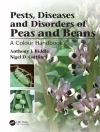This book explores issues of agricultural development and the provision of food security, providing a core framework and recommendations for implementing sustainable development goals in these areas. Focused on the period up to 2030 to match the timeline of the SDGs, the book surveys the current landscape and the prospects for agricultural development, demonstrating how Agriculture 4.0 based on AI and deep learning must follow from digitalization as the next step to ensuring food security. It brings together research based on analytical and statistical data, including the IMD World Digital Competitiveness Report and the Food Security Report from the Economist Intelligence Unit, and reliable mathematical tools including correlation and regression analysis, forecasting with histogramming, probability estimates, and the simplex method, as well as Game Theory methodology and the hierarchical procedure method of Thomas Lorie Saaty to forecast international scenarios for food security inthe future economy. Containing theoretical and practical insights, the book will be of interest to those studying agricultural economics, the digital economy, and concepts of Agriculture 4.0 and Industry 4.0.
Mục lục
Part 1. Digital Agriculture and New Opportunities for Providing Food Security in the Context of the Fourth Industrial Revolution.- Chapter 1: Strategic Directions for Smart Agriculture Based on Deep Learning for Future Risk Management of Food Security. By Elena G. Popkova, Tatiana N. Litvinova, Olga M. Zemskova, Mariya F. Serebryakova and Anna A. Karpova.- Chapter 2: Food and Water Security of the Middle East (the Case of Egypt). By Denis A. Mirgorod, Gennadii V. Kosov, Elena A. Soloveva, Alihan M. Israilov and Alexander A. Pohilko.- Chapter 3: Best Practices and the Digital Model of Agricultural Development in Developed and Developing Countries. By Elena V. Sofiina, Irina V. Milchik, Igor V. Denisov and Nadezhda K. Savelyeva.- Chapter 4: Monitoring the Compliance of Today’s Agriculture with Food Security Needs for Sustainable Development. By Elena A. Bratukhina, Berik T. Beisengaliyev, Anastasia A. Sozinova and Ksenia V. Borzenko.- Chapter 5: Green Finance: Analysis of Prospects ofthe Russian Market. By Olga G. Kantor, Yuliya R. Rudneva, Dmitriy Yu. Dunov, Shakhlo T. Ergasheva and Boris M. Leybert.- Part 2. Prospects for Food Security of the Future Economy in the Transition to Agriculture 4.0 Based on Deep Learning.- Chapter 6: Food Security in the Digital Economy: Traditional Agriculture vs. Smart Agriculture Based on Artificial Intelligence. By Aleksei V. Bogoviz, Vladimir S. Osipov, Tatiana M. Vorozheykina, Veronika V. Yankovskaya and Igor Yu. Sklyarov.- Chapter 7: Transition from Digital Agriculture to Agriculture 4.0 as the Most Promising Scenario for Ensuring Future Food Security. By Mikhail S. Kyzyurov, Ayapbergen A. Taubayev, Larissa P. Steblyakova and Larisa V. Shabaltina.- Chapter 8: A New Level of Food Security as a Result of the Transition of Food-Importing Countries to Agriculture 4.0 based on Deep Learning. By Anastasia A. Sozinova, Aigul S. Daribekova, Irina P. Lapteva and Maria V. Makarova.- Chapter 9: Risks of Agricultural Economy and Climate Risk Management for Enterprises of Agriculture 4.0 based on Deep Learning. By Tatiana N. Litvinova.- Chapter 10: Prospects for Using Investment by Agricultural Cooperatives of Kyrgyzstan in the Regional Economy of Central Asia. By Kalil D. Dzhumabayev, Alymkul K. Dzhumabayev, Shukurali A. Jamalov, Elmira K. Kydykbaeva and Taalaigul Azamat kyzy.- Part 3. Applied Recommendations for Shaping Agriculture 4.0 based on Deep Learning to Ensure the Food Security of the Economy of the Future.- Chapter 11: Advanced Digital Technology in Agriculture and its Contribution to Food Security. By Elena V. Karanina, Elena A. Vechkinzova, Yuliya A. Kopytina and Nurlybek T. Malelov.- Chapter 12: Roadmap for the Transition from Digital Agriculture to Agriculture 4.0 based on Deep Learning in the Economy of the Future by 2030. By Nazgul S. Daribekova, Marina A. Sanovich, Nadezhda K. Savelyeva, Tatiana A. Dugina and Anastasia I. Smetanina.- Chapter 13: Automation of Agriculture Based on Deep Learning: Modeling and Management to Improve Quality and Efficiency. By Natalia V. Przhedetskaya, Eleonora V. Nagovitsyna, Victoria Yu. Przhedetskaya and Ksenia V. Borzenko.- Chapter 14: Responsible Production and Consumption in Agriculture 4.0 based on Deep Learning for Sustainable Development. By Yerlan B. Zhailauov, Natalia V. Przhedetskaya and Vasiliy I. Bespyatykh.
Giới thiệu về tác giả
Elena G. Popkova is a Leading Researcher at Moscow State Institute of International Relations (MGIMO University), and the President of the Institute of Scientific Communications, Russia.
Bruno S. Sergi is an Instructor at Harvard University, USA. He is also an Associate of the Harvard’s Davis Center for Russian and Eurasian Studies and the Harvard Ukrainian Research Institute. He teaches Political Economy and International Finance at the University of Messina, Italy.












